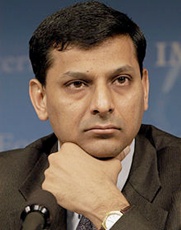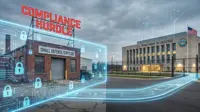RBI widens ambit for banks to deal with loan defaulters
23 Dec 2014
The Reserve Bank of India (RBI) has tightened prudential measures and reporting requirements for lenders, in a bid to deal with willful defaulters and 'non-cooperative' borrowers, so as to help banks struggling to recover dues from errant borrowers.
 In the process the central bank has narrowed the difference between the definition of non-cooperative borrower and that of a 'wilful defaulter'.
In the process the central bank has narrowed the difference between the definition of non-cooperative borrower and that of a 'wilful defaulter'.
The RBI has characterised a non-cooperative borrower as one ''who does not engage constructively with his lender by defaulting in timely repayment of dues while having the ability to pay, thwarting lenders' efforts for recovery of their dues by not providing necessary information sought, denying access to assets financed and collateral securities, obstructing sale of securities etc''.
''In effect, a non-cooperative borrower is a defaulter who deliberately stonewalls legitimate efforts of the lenders to recover their dues,'' RBI said in a release.
RBI has asked banks and other financial institutions to take measures to classifying or declassify a borrower as non-cooperative borrower and to report information on such borrowers to Central Repository of Information on Large Credits (CRILC).
RBI has set the cut off limit for classifying borrowers as non-cooperative at Rs5 crore for both with fund-based and non-fund based facilities from the concerned bank/FI.
A non-cooperative borrower in case of a company will include, besides the company, its promoters and directors (excluding independent directors and directors nominated by the government and the lending institutions).
In case of business enterprises (other than companies), non-cooperative borrowers would include persons who are in-charge and responsible for the management of the affairs of the business enterprise.
It would be imperative on the part of the banks / FIs to put in place a transparent mechanism for classifying borrowers as non-cooperative. A solitary or isolated instance should not be the basis for such classification.
The decision to classify the borrower as non-cooperative borrower should be entrusted to a committee of higher functionaries headed by an executive director and consisting of two other senior officers of the rank of general managers/ deputy general managers as decided by the board of the concerned bank/FI, RBI said.
If the committee concludes that the borrower is non-cooperative, it should first issue a show-cause notice to the concerned borrower (and the promoter/whole-time directors in case of companies) and call for submission and proceed further on the basis of the submission, while at the same time giving an opportunity to the borrower for a personal hearing if the committee feels such an opportunity is necessary.
The order of the committee should be reviewed by another committee headed by the chairman / CEO and MD and consisting, in addition, of two independent directors of the bank/FI and the order shall become final only after it is confirmed by the said review committee.
Banks/FIs will be required to report information on their non-cooperative borrowers to CRILC within 21 days from the close of the relevant quarter.
Boards of banks/FIs should review on a half-yearly basis the status of non-cooperative borrowers for deciding whether their names can be declassified as evidenced by their return to credit discipline and cooperative dealings. Removal of names from the list of non-cooperative borrowers should be separately reported under CRILC with adequate reasoning/rationale for such removal.
If any particular entity is reported non-cooperative, any fresh exposure to such a borrower will by implication entail greater risk necessitating higher provisioning. Banks/FIs will therefore be required to make higher provisioning as applicable to substandard assets in respect of new loans sanctioned to such borrowers as also new loans sanctioned to any other company that has on its board of directors any of the whole time directors/promoters of a non-cooperative borrowing company or any firm in which such a non-cooperative borrower is in charge of management of the affairs.
However, for the purpose of asset classification and income recognition, the new loans would be treated as standard assets.




















